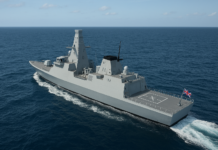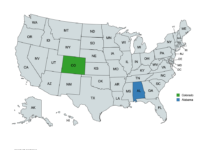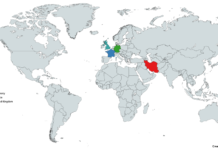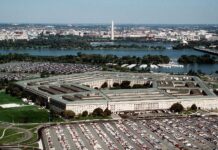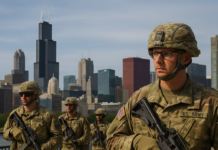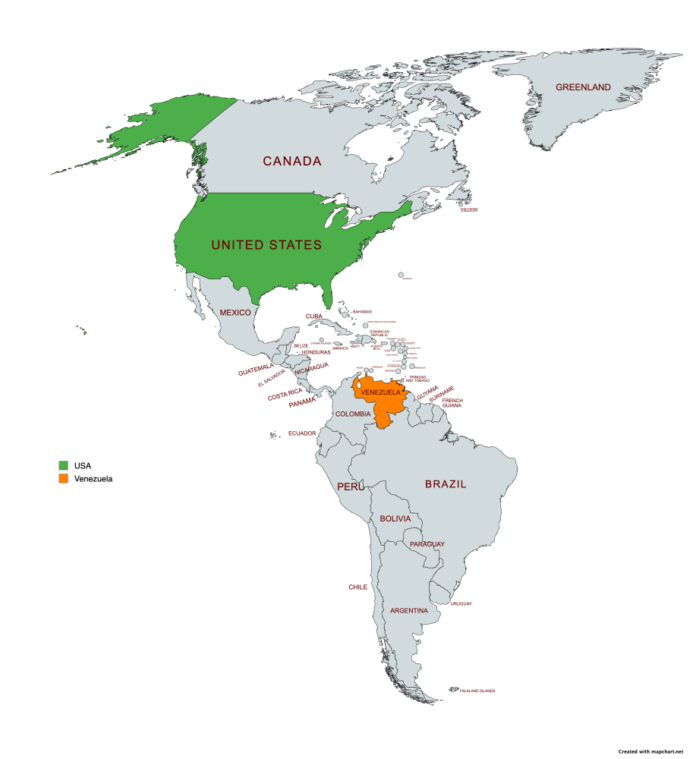
President Donald Trump announced Tuesday that U.S. forces carried out a strike against a vessel in the southern Caribbean, killing 11 people alleged to be members of Venezuela’s Tren de Aragua gang. The incident adds to already heightened tensions between Washington and Caracas, following recent U.S. naval deployments to waters near Venezuela.
Speaking in the Oval Office, Trump described the target as a “drug-carrying boat” and said the action took place “over the last few minutes.” Shortly afterward, he posted on Truth Social that the strike had been ordered under his authority, calling those killed “terrorists.” He also shared a grainy aerial video appearing to show a speedboat engulfed in flames after an explosion.
Secretary of State Marco Rubio confirmed the strike in a post on X, describing it as an attack on a vessel linked to a group Washington has classified as a terrorist organization involved in narcotics trafficking. He later told reporters in Miami that the vessel had departed from Venezuela and that the drugs on board may have been bound for Caribbean destinations such as Trinidad.
The U.S. has long accused Venezuelan President Nicolás Maduro of overseeing or enabling narcotics trafficking, even offering a $50 million bounty for his arrest. The Trump administration has stepped up military pressure in recent weeks, sending destroyers and the Iwo Jima Amphibious Ready Group to the region. Trump has also tied Space Command and missile defense programs to broader U.S. strategy in the Western Hemisphere.
Maduro, sworn in for a third term earlier this year after elections widely criticized abroad, has framed the U.S. actions as an attempt to topple his government. In recent days he declared “maximum preparedness,” claiming that 4.5 million militia members stand ready to resist foreign intervention. Venezuelan state television has featured footage of civilians training and pledging loyalty to the president.
In his response to Tuesday’s strike, Maduro appeared in his childhood neighborhood with supporters, saying Venezuela would maintain peace “with sovereignty.” Communications Minister Freddy Ñáñez questioned the authenticity of the video Trump shared, claiming it looked artificial, though he provided no evidence. Reuters reported that its initial checks did not show clear signs of manipulation, but its review was ongoing.
The Tren de Aragua gang, which originated more than a decade ago inside a Venezuelan prison, has expanded operations across Latin America during the country’s economic collapse. Millions of Venezuelans have fled abroad, and authorities in Colombia, Peru, and Chile have blamed the group for violent crime and trafficking. U.S. officials contend the gang has links to Venezuelan leadership, though a declassified intelligence report earlier this year suggested its operations are more fragmented.
Former U.S. Ambassador to Venezuela James Story questioned the coherence of Washington’s policy, pointing out that while the administration escalates military action, it has also reissued licenses for Chevron to operate in Venezuela.
The United Nations’ latest World Drug Report shows increases in cocaine seizures across Colombia, Ecuador, and Peru but does not assign Venezuela the central role that U.S. officials emphasize. Maduro’s government has cited the report to argue that Washington is exaggerating Venezuela’s involvement as a pretext for intervention.
The strike is one of the rare U.S. military operations in the Americas in recent years. While Trump warned, “There’s more where that came from,” Maduro responded by vowing to “declare a republic in arms” if further U.S. action is taken. The situation leaves both countries locked in a standoff, with regional security and civilian stability hanging in the balance.
Green = USA
Orange = Venezuela
Image is licensed under the Creative Commons Attribution-Share Alike 4.0 International license and was created using MapChart (https://mapchart.net).
